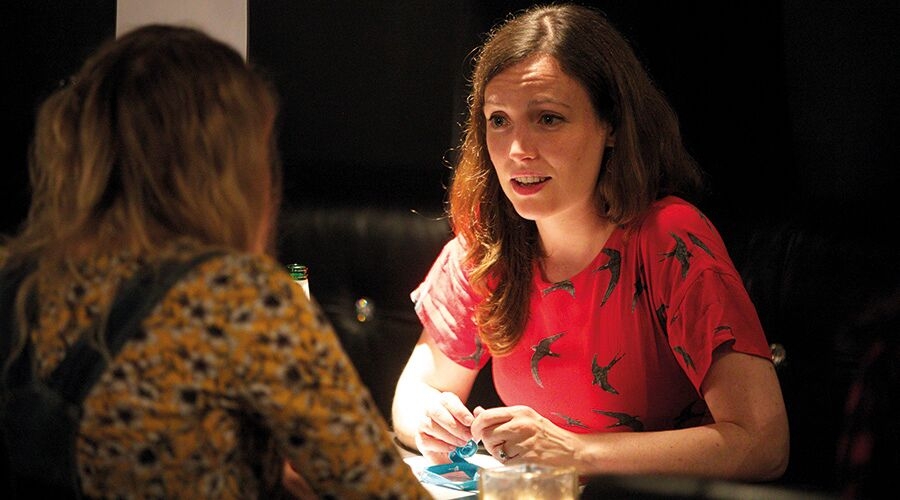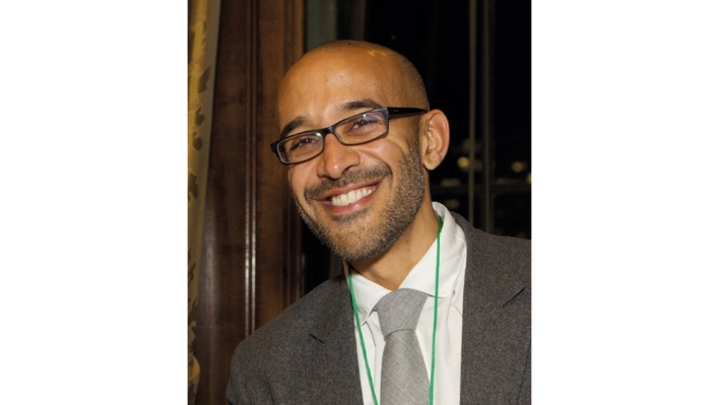You need to be dedicated to get ahead in TV – but the job satisfaction can be huge. Matthew Bell reports
TV is no place for the idle or faint of heart, according to the gurus at the latest RTS Futures speed-dating event. Building a career in the industry takes hard graft and passion – plus, course, an ability to do the job.
“Unless your work ethic is really strong, [a career in TV] is not going to suit you. If it is, it is exciting and a real privilege,” said Emily Lawson, Series Producer of Channel 4’s The Supervet.
Barnaby Coughlin, Series Director of BBC Two’s Phone Shop Idol, started as a runner on ITV breakfast service GMTV. “I was doing night shifts and working all the hours, but when you’re young you’ve got the energy and ambition to do that. It is an all-consuming industry – when you’re working on a project it takes over your life,” he said.
Lawson and Coughlin were talking to Television magazine at “Speed date the content creators” in early October, which matched producers and directors with young TV hopefuls over a series of three-minute dates.
The factual and entertainment gurus reckoned that there were opportunities for newcomers to make their mark in their genres.
“It feels like an exciting time. There are many more documentary series now, compared with when I started,” said producer/director Nicola Brown, whose credits include Channel 4 shows The Secret Life of Four Year Olds and Educating Cardiff. Fixed-rig shows, in particular, she added, were looking to hire.
Lawson said that there was “an appetite for returning series that grab the public’s attention, so we’re looking for people all the time”.
“We take people on, certainly in the more junior roles. A good place to start is as a runner,” said Claire Walls, Series Producer of BBC One’s The Apprentice.
Landing a job on a long-running series could be the start of something big. “From year to year, they can move up [the ladder]. Runners last year become researchers on the next series,” explained Walls’s colleague Stephen Day, Series Editor on the Alan Sugar-fronted show, a TV fixture for the past decade.
Television can be a tough industry for beginners: work is irregular and often badly paid. Conditions, though, are improving, reckoned producer Jessica Jones, whose credits include BBC Two’s Great British Menu.
“When I started, we were unpaid, sleeping on friends’ sofas, grafting until three in the morning. Now, there seems to be a lot more respect for the younger and more junior members of staff, which is only a good thing,” she said.
Newcomers should look beyond traditional television, argued Mike Matthews, who directed Channel 4’s Jamie’s 15-Minute Meals. “There are so many [online] channels out there. They’re not conventional telly, but they need talented people to make [content] for them,” he said.
“The skill set that you need to make great television has become broader,” said Gemma Nightingale, Series Producer of Ant & Dec’s Saturday Night Takeaway, the shiny floor show that first aired in 2002. “As a TV producer, I now have to be aware of digital – we need to be available on so many more platforms than we did 13 years ago, when I started.”
The TV industry can be a battlefield, with researchers, producers and directors fighting for work. Yet, once filming starts, differences have to be forgotten and a close-knit team formed.
“Every person, whether they’re doing work experience or are employed as the executive producer, has their own job to do and they need to do that job well,” said Nightingale. “If one person isn’t supported by the people around them and can’t do their job, you don’t have a team.”
“TV’s an incredibly competitive industry and everyone wants to work on the big shows,” said Nightingale’s fellow Saturday Night Takeaway Series Producer Diego Rincon. “The energy of the show comes from the energy of the team, so you’re not going to get anyone to watch [the show] if the team isn’t behind it.”
Being rude is the worst thing you can do in telly
“It’s also important to get many strings to your bow – in the more junior positions, you have the opportunity to try different things and that’s brilliant,” argued Matthews. “If you [specialise] too early, you can get pigeon-holed.”
“Get on the shows that allow you to try different things,” recommended Nightingale. “I’ve worked on Takeaway for eight series, starting as a researcher, and I’ve done most things on that show – I’ve set up shoots, worked with celebrities, done location shoots, live shows every Saturday, casting – that show has given me everything.”
The gurus at the speed-dating event, however, cautioned against being in too much of a hurry. “People expect to be promoted too quickly now,” said Walls. “Just because they’ve had a couple of jobs as a researcher, they think they’re owed the next job up, but [often] they’re not good enough.
“You learn an awful lot by doing different types of series.”
The RTS Futures event, ‘Speed date the content creators’, was held on 5 October at the Amber Bar in central London. It was produced by Emily Gale and Carrie Britton.
Camera skills are essential
Barnaby Coughlin, director: ‘The business has changed. When I was younger, you learned your trade. I came out of college and I’d never picked up a camera. I went in as a runner and then became a researcher and then an assistant producer – there were very clear ways of getting to be a director.
‘Now, everyone is au fait with cameras before they even start.… If you can shoot, you will get jobs.… In my day, you didn’t have to shoot, there were cameramen. That world of self-shooting didn’t exist.
‘In the past five or six years, that’s become the predominant [way of working] in the industry.’
What’s it take to succeed?
Jessica Jones, producer: ‘The ability to solve problems… being respectful to contributors, working hard.’
Nicola Brown, director: ‘Enthusiasm and hard work. It’s an incredibly demanding industry and [not for] anyone who wants to clock off at six.… Being a grafter, making cups of tea, carrying people’s kit and learning the job as you go.’
Mike Matthews, director: ‘The people who stick around are fun, hard-working, resourceful and innovative.… Being rude is the worst thing you can do in telly.’
Claire Walls, producer: ‘A degree is not essential… as long as they show initiative, have intelligence and are quick learners.… These are the attributes we’re looking for, regardless of qualifications.… Be a great team player and don’t get above yourself.…
‘Listen to everything that’s going on around you and embrace the experience. Always ask questions.… You have to like people, because television is all about people, whether it’s the team you work with or the people you’re filming.’
Gemma Nightingale, producer: ‘People want to help and are interested in people who want to learn. There’s no such thing as a stupid question.… If you have the energy, passion, enthusiasm and the bravery to be creative, that’s what’s going to make you stand out.’







